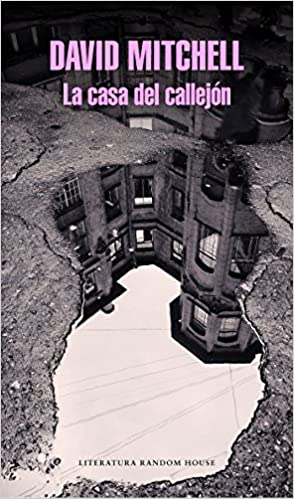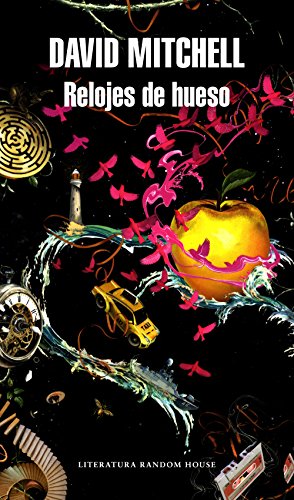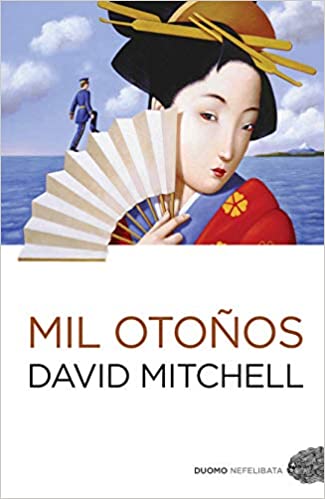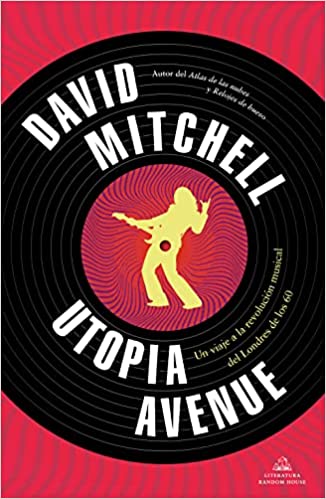There is no writer's table at which David Mitchell can sit down. Despite its good collection of published books. Because the Mitchell thing is to feed him aside. In the sense that its narrative menu is not limited to a letter of any kind.
And it turns out that the surprising ability to pair what was thought to be impossible to mix is also appreciated. Only in this way are vanguards or even postmodernism of the day groping. David Mitchell is thus a writer immersed in that wonderful forward creative flight where anything goes and where, surely, it is published as much as another part is thrown away.
Because even the most avant-garde does not indulge in improvisation if it is expected to achieve that final taste of a reader as surprised as it is pleasantly surprised. Something like a Amélie Nothomb but with more fondness for darkened plots where you can rescue mysteries, fears, horrors or rarities from the shadows. A menu always recommended ...
David Mitchell's Top 3 Recommended Novels
The alley house
A decadent setting offers a mysterious charm where melancholy of other times and gloomy fantasies of what that space can still house are mixed. Echoes of the past, whispers that seem to narrate the chilling causes of this deterioration ..., endless evocations for every observer, listener or reader.
The iron gate, which opens for anyone who wants to enter this fascinating house in a classic middle London neighborhood, anticipates that simple consideration of entry into a space at odds with the rest of a block of flats neighborhood.
The house is there and no one seemed to even dare to think about demolishing it. Not a few have ever entered but none of them offers testimony of what can be seen. The best thing is to go in, be left speechless with that majestic decadence, typical of a gloomy poem by Poe.
The house invites you to continue along the path behind the gate, towards the door of the house. Inside you discover that there may still be someone who inhabits it and a chill runs through your body when you are offered a friendly walk through its rooms, guided by those who still understand those peeling walls as their home.
And sometimes the house stops being the present and becomes what it was. It is not a charm, it is something that combines the material and the emotional. A sinister beauty that arouses some suspicion, an undeniable fear. You don't know if you can't get out of there or if you really don't want to.
A story that grabs you in a different way, succumbing to sensations that flow between a plot of a nineteenth-century everyday life in which you integrate, with the notion that reality is blurring, without knowing if it is something specific or if it can be forever. .
You may want to get out of the house. Which is the same, stop reading, but you can not. Because you will never have inhabited another different reality and your eagerness to know, your curiosity, is a powerful weapon, perhaps a weapon towards self-destruction.
Bone watches
Certain moments in life can be suspended in an estrangement that triggers alienation, depersonalization, that kind of dislocation from which the great poets and tormented spirits extract their greatest stories. The beginning of youth can be one of those moments. And they are not only lived by souls capable of literary exorcism.
After a fight with her mother, Holly runs away from home. As he walks into the English countryside, a stranger crosses his path and requests "asylum", a request to which the adolescent agrees without being aware of its meaning. Suddenly, the strange visions and voices that haunted her as a child come back to haunt her and alter her world to a nightmare aura. Added to this is the traumatic disappearance of his little brother, a disturbing boy with unusual intelligence. It will be many years before Holly understands what happened that weekend.
A pace thriller, this conjurer of British letters takes us to a world full of possibilities through family crises, university settings, war conflicts, literary festivals and post-apocalyptic micro-societies, all united by fantasy, magic, inventiveness, humor and ingenuity.
Thousand Autumns
The great traditions are established thanks to a kind of autarky that also extends to uses and customs. It is as much about safeguarding one's own as it is about fearing the strange. Perfect times and places on which to compose a novel of unsuspected impact ...
Jacob de Zoet is located in Deshima, the only Japanese commercial enclave that during the Edo era allows foreign presence. This young Dutch man hopes to raise enough money in five years to marry the beautiful Anne.
However, his stay is complicated when he meets Orito, a beautiful and intelligent midwife who after the death of her father, the prestigious doctor Aibagawa, mysteriously disappears. Amid the intrigues of merchants, scammers and colleagues whose actions seem to have been infected by the dark climate of the island, Jacob tries to decipher the contents of a mysterious parchment that seems to contain the key to understanding the disappearance of Orito, his forbidden love, and the secrets surrounding the enigmatic Brotherhood of Mount Shiranui.
Other recommended books by David Mitchell
Utopia Avenue
In 1967, four musicians come together to create a unique sound. Born in the London psychedelic scene, Utopia Avenue is the British band that, with only two albums and a short but dazzling career, manages to capture the essence of a turbulent time.
Spearheaded by folk singer Elf Holloway, and featuring bassist Dean Moss, guitar virtuoso Jasper de Zoet, and jazz drummer Griff Griffin, Utopia Avenue embarks on a meteoric journey to leave an everlasting musical legacy: from its very beginning in the seedy clubs of Soho and his television debut on Top of the Pops to the height of his success and his eventful tour of a United States at the height of the counterculture and the protests of the Vietnam War.
Utopia Avenue presents a vivid and brilliant portrait of the twilight of the sixties through a fictional band that suffered the Faustian pact of fame and staggered towards stardom. With this monumental and kaleidoscopic novel, where egos, envy, drugs, sex, dreams and mental disorders parade, David Mitchell invites us to travel back in time to celebrate the great power that music has to unite, define an era, move the soul and, above all, change the world.




